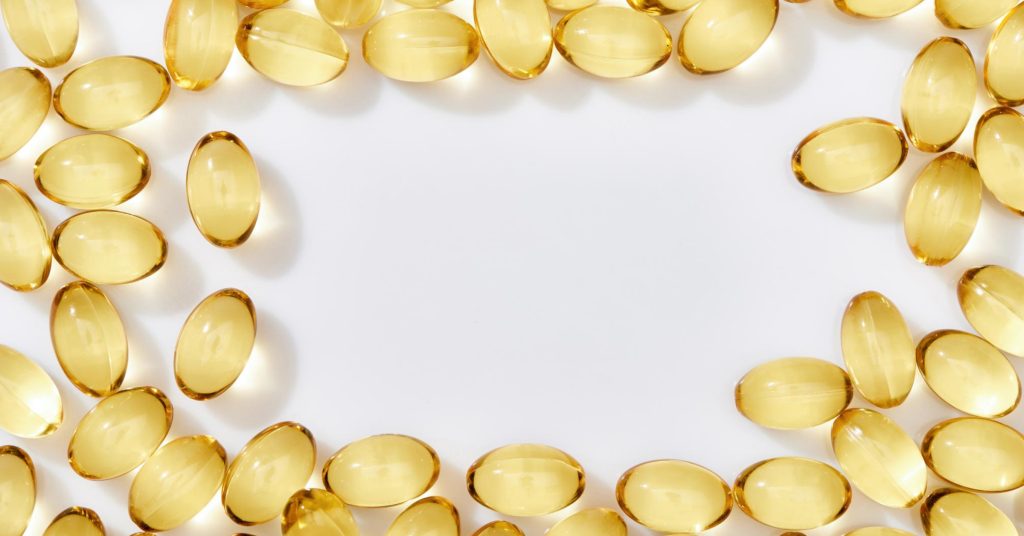Attention-deficit/hyperactivity disorder (ADHD) affects millions of people worldwide, causing challenges in daily life and hindering academic and professional success. If you or a loved one has ADHD, you know the constant struggle to manage symptoms and find effective treatment. But what if there was a natural way to improve ADHD symptoms without relying on medication? Enter phosphatidylserine, a lesser-known but powerful supplement that can help harness the brain’s potential and improve symptoms of ADHD. In this article, we will explore the benefits and potential of phosphatidylserine for ADHD, providing you with a new perspective and solution to managing this often overwhelming condition.
What Is Phosphatidylserine?
Phosphatidylserine is a naturally occurring phospholipid in our bodies that plays a crucial role in brain health. It is found in high concentrations in the brain and is responsible for cell communication, memory, and cognitive function. This essential nutrient has been extensively studied for its potential benefits in improving symptoms of ADHD.
Research indicates that supplementing with phosphatidylserine may effectively reduce hyperactivity and impulsivity, as well as improve attention in individuals with ADHD. However, it is important to consult with a healthcare professional before incorporating any new supplements into your routine, in order to determine the appropriate dosage and ensure its safety for you.
How Does Phosphatidylserine Work?
Phosphatidylserine works by regulating neurotransmitters and supporting brain cell function. Below is a step-by-step breakdown of its mechanism:
- Phosphatidylserine enters the brain and becomes part of the cell membranes.
- It maintains the fluidity of the membranes, facilitating efficient communication between brain cells.
- Phosphatidylserine aids in the production and release of important neurotransmitters like dopamine and norepinephrine, which are essential for focus and attention.
- It also helps regulate cortisol levels, reducing stress and promoting a calm and focused state of mind.
- By supporting brain cell function and balancing neurotransmitters, phosphatidylserine can potentially improve symptoms of ADHD.
Pro-tip: When choosing a phosphatidylserine supplement, opt for one derived from soy or sunflower lecithin and consult with a healthcare professional for personalized guidance.
What Are the Benefits of Phosphatidylserine?
Phosphatidylserine, a naturally occurring fatty acid found in our bodies, has been gaining attention for its potential to improve symptoms of ADHD. In this section, we will delve into the various benefits of phosphatidylserine and how it can positively impact our cognitive and emotional well-being. From improving memory and cognitive function to reducing stress and enhancing mood, we will explore the multiple ways in which this powerful supplement can support brain health.
1. Improves Memory and Cognitive Function
Improving memory and cognitive function can be achieved through the use of phosphatidylserine, a natural compound found in the body and certain foods. Here are some steps to incorporate phosphatidylserine into your routine:
- Include phosphatidylserine-rich foods in your diet, such as soybeans, white beans, and cow brains.
- Consider taking phosphatidylserine supplements, which are available in capsule or powder form.
- Consult with a healthcare professional to determine the appropriate dosage and ensure it is safe for your specific needs.
- Follow the recommended instructions for taking phosphatidylserine supplements, whether it’s with meals or on an empty stomach.
- Be consistent with your phosphatidylserine intake to experience the potential benefits on memory and cognitive function.
2. Reduces Stress and Anxiety
Reducing stress and anxiety is one of the benefits of incorporating phosphatidylserine into your routine. To help with these conditions, follow these steps:
- Begin with a low dosage of phosphatidylserine, typically around 100 mg per day.
- Gradually increase the dosage, up to 400 mg per day, under the guidance of a healthcare professional.
- For optimal absorption, take phosphatidylserine supplements with a meal.
- Incorporate other stress-management techniques, such as exercise, meditation, and deep breathing exercises, along with phosphatidylserine.
- Regularly monitor your stress and anxiety levels and adjust the dosage as needed.
3. Enhances Mood
Phosphatidylserine is a natural compound that has been shown to have mood-enhancing effects. If you are interested in incorporating it into your routine, here are some steps to follow:
- Consult with a healthcare professional to determine the appropriate dosage for you.
- Consider incorporating natural food sources of phosphatidylserine into your diet, such as fatty fish, organ meats, and soy products.
- If necessary, you can also add dietary supplements that contain phosphatidylserine to your daily regimen.
- Track any changes or improvements in your mood over time.
- Remember to always follow the guidance of your healthcare professional and make any necessary adjustments to your routine as needed.
4. Supports Brain Health
Phosphatidylserine is a powerful supporter of brain health as it promotes cellular function, reduces inflammation, and enhances neurotransmitter activity. It is known to improve memory, focus, and overall cognitive function, making it particularly beneficial for individuals with ADHD. In addition, phosphatidylserine has been found to reduce stress and anxiety, while also enhancing mood. This essential nutrient can be obtained through natural food sources such as fatty fish and soybeans, or through dietary supplements. It is recommended to consult with a healthcare professional to determine the appropriate dosage and form for your needs.
By harnessing the power of phosphatidylserine, one can take a natural approach to enhancing ADHD symptoms and promoting overall brain health. This essential phospholipid was first discovered by scientists in the 1940s while studying brain tissue. They found that it played a crucial role in maintaining the structural integrity and functionality of brain cells. Since then, extensive research has been conducted to explore its potential benefits for brain health and cognitive function.
What Is ADHD?
ADHD, or Attention-Deficit/ Hyperactivity Disorder, is a neurodevelopmental condition that affects both children and adults. It is characterized by symptoms such as inattention, hyperactivity, and impulsivity. Those with ADHD may struggle with staying focused, organizing tasks, and controlling their impulses. This condition can have a significant impact on academic and occupational functioning, as well as relationships.
It is important to understand that ADHD is a medical condition and not simply a lack of discipline or willpower. Proper diagnosis and treatment, which may include therapy and medication, can help individuals with ADHD effectively manage their symptoms and improve their overall quality of life.
How Can Phosphatidylserine Help with ADHD Symptoms?
When it comes to managing ADHD symptoms, many people turn to traditional pharmaceuticals. However, there is a natural alternative that has been gaining attention in recent years: phosphatidylserine. This section will dive into the ways in which this natural compound can help alleviate ADHD symptoms. From improving attention and focus to reducing hyperactivity and impulsivity, we’ll explore the various benefits that phosphatidylserine has to offer. Additionally, we will discuss how it can enhance executive functioning, making it a promising option for those seeking a natural approach to managing ADHD.
1. Improves Attention and Focus
Improved attention and focus are some of the key benefits of incorporating phosphatidylserine into your routine. Here are steps to follow:
- Consult with a healthcare professional to determine the appropriate dosage for your needs.
- Choose a high-quality phosphatidylserine dietary supplement from a trusted brand.
- Follow the recommended dosage instructions provided by the manufacturer.
- Take the supplement consistently, preferably with a meal to enhance absorption.
- Observe any changes in your attention and focus levels over time.
- Keep track of any improvements or side effects and discuss them with your healthcare professional.
- Adjust the dosage if necessary based on your healthcare professional’s recommendations.
- Continue incorporating phosphatidylserine into your routine as part of a comprehensive approach to managing ADHD symptoms.
2. Reduces Hyperactivity and Impulsivity
Reducing hyperactivity and impulsivity are key benefits of incorporating phosphatidylserine into your routine for individuals with ADHD. To ensure the best results, follow these steps:
- Consult with a healthcare professional to determine the appropriate dosage for your needs.
- Choose a reputable brand of phosphatidylserine supplement.
- Follow the recommended dosage instructions provided by the manufacturer.
- Consistently take the supplement at the same time each day.
- Monitor your symptoms and track any improvements in hyperactivity and impulsivity.
- Adjust the dosage if necessary based on guidance from your healthcare professional.
- For optimal results, combine phosphatidylserine with other ADHD management strategies, such as therapy or lifestyle changes.
3. Enhances Executive Functioning
Enhancing executive functioning is one of the many benefits of incorporating phosphatidylserine into your routine. Follow these steps to see the positive effects:
- Set clear goals and prioritize tasks to improve focus and organization.
- Break down complex tasks into smaller, more manageable steps to enhance planning and problem-solving skills.
- Utilize visual aids such as calendars, to-do lists, and reminders to improve memory and time management.
- Practice mindfulness techniques, such as deep breathing and meditation, to reduce stress and improve emotional regulation.
- Regular physical exercise can also boost cognitive function and improve attention span.
What Are the Potential Side Effects of Phosphatidylserine?
Phosphatidylserine is generally considered safe and well-tolerated by most individuals. However, some potential side effects may occur, although they are rare and mild. These can include digestive issues such as nausea or stomach upset. In rare cases, individuals may experience insomnia or restlessness. It is important to note that these side effects are not commonly reported and may vary from person to person. As always, it is recommended to consult with a healthcare professional before starting any new supplement regimen to ensure it is suitable for your specific needs.
Fun Fact: Not only is Phosphatidylserine beneficial for ADHD symptoms, but research has also shown its potential in improving memory and cognitive function in older adults.
How to Incorporate Phosphatidylserine into Your Routine?
Incorporating phosphatidylserine into your daily routine can be a game changer for managing ADHD symptoms. But the question is, how exactly can you add this powerful compound into your lifestyle? In this section, we will explore the different ways to incorporate phosphatidylserine into your routine, whether it be through natural food sources, dietary supplements, or seeking guidance from a healthcare professional. Get ready to take control of your ADHD with this natural approach.
1. Natural Food Sources
Incorporating natural food sources of phosphatidylserine into your diet can be beneficial for enhancing ADHD symptoms. Here are some steps to help you include phosphatidylserine in your daily routine:
- Include fatty fish like salmon, mackerel, and trout in your diet as they are rich sources of phosphatidylserine.
- Incorporate organ meats such as liver and kidney into your meals as they are also good sources of phosphatidylserine.
- Boost your intake of phosphatidylserine by consuming soy products like tofu, tempeh, and soybeans.
- Another way to incorporate phosphatidylserine into your meals is by adding egg yolks, especially from eggs enriched with this nutrient.
- Consult with a healthcare professional before starting any new supplements, but consider incorporating supplements made from natural food sources of phosphatidylserine.
2. Dietary Supplements
When it comes to incorporating dietary supplements like phosphatidylserine into your routine, follow these steps to ensure optimal results:
- Consult with a healthcare professional to determine if phosphatidylserine is suitable for you and to establish the appropriate dosage.
- Choose a reputable brand that sources high-quality phosphatidylserine from reliable suppliers, especially when it comes to dietary supplements.
- Follow the recommended dosage instructions provided by the manufacturer or healthcare professional.
- Take the supplement with a meal or as directed by your healthcare professional to enhance absorption and maximize its benefits.
- Consistently incorporate the supplement into your daily routine for the best results.
By following these steps, you can safely and effectively incorporate dietary supplements, including phosphatidylserine, into your routine to support your overall health and well-being.
3. Consult with a Healthcare Professional
When considering the use of phosphatidylserine for managing ADHD symptoms, it is crucial to consult with a healthcare professional. Here are the steps to follow:
- Step 1: Schedule an appointment with a qualified healthcare professional, such as a doctor or psychiatrist.
- Step 2: Discuss your symptoms, medical history, and current medications with the healthcare professional.
- Step 3: Seek their expert advice on whether phosphatidylserine is suitable for you, considering potential interactions or contraindications.
- Step 4: Follow the healthcare professional’s guidance on the appropriate dosage and duration of phosphatidylserine use.
- Step 5: Regularly communicate with the healthcare professional to monitor your progress and address any concerns or side effects that may arise.
Frequently Asked Questions
What is phosphatidylserine and how can it help with ADHD symptoms?
Phosphatidylserine is a naturally occurring lipid that plays a crucial role in brain function and communication. Research has shown that supplementing with phosphatidylserine can improve cognitive function and alleviate symptoms of ADHD, such as hyperactivity, impulsivity, and inattention.
How does phosphatidylserine work to enhance ADHD symptoms?
Phosphatidylserine works by promoting the production of neurotransmitters, particularly dopamine and acetylcholine, which are essential for regulating mood, attention, and focus. It also helps to reduce cortisol levels and support the function of the brain’s prefrontal cortex, which is responsible for executive functions like planning, organization, and self-control.
Is phosphatidylserine safe for children with ADHD?
Yes, phosphatidylserine is generally safe for children with ADHD. It is a natural substance found in the body and can also be sourced from foods like soybeans and white beans. However, it is always advisable to consult with a healthcare professional before starting any new supplement regimen for children.
How long does it take to see results from taking phosphatidylserine for ADHD symptoms?
The time it takes to see results from taking phosphatidylserine can vary from person to person. Some may experience improvements in symptoms within a few days, while others may take a few weeks to notice a difference. Consistent use of phosphatidylserine is important for long-term results.
Are there any potential side effects of taking phosphatidylserine for ADHD?
Phosphatidylserine is generally well-tolerated and has a low risk of side effects. However, some individuals may experience mild digestive discomfort, headache, or insomnia. It is important to follow recommended dosages and consult a healthcare professional if any adverse reactions occur.
Can phosphatidylserine be used as a standalone treatment for ADHD?
Phosphatidylserine can be used as a complementary approach to managing ADHD symptoms, but it is not a standalone treatment. It is essential to incorporate other strategies, such as therapy, behavioral interventions, and lifestyle changes, to effectively manage ADHD. Consult with a healthcare professional for a comprehensive treatment plan.







